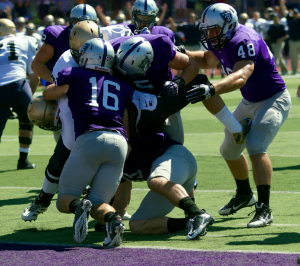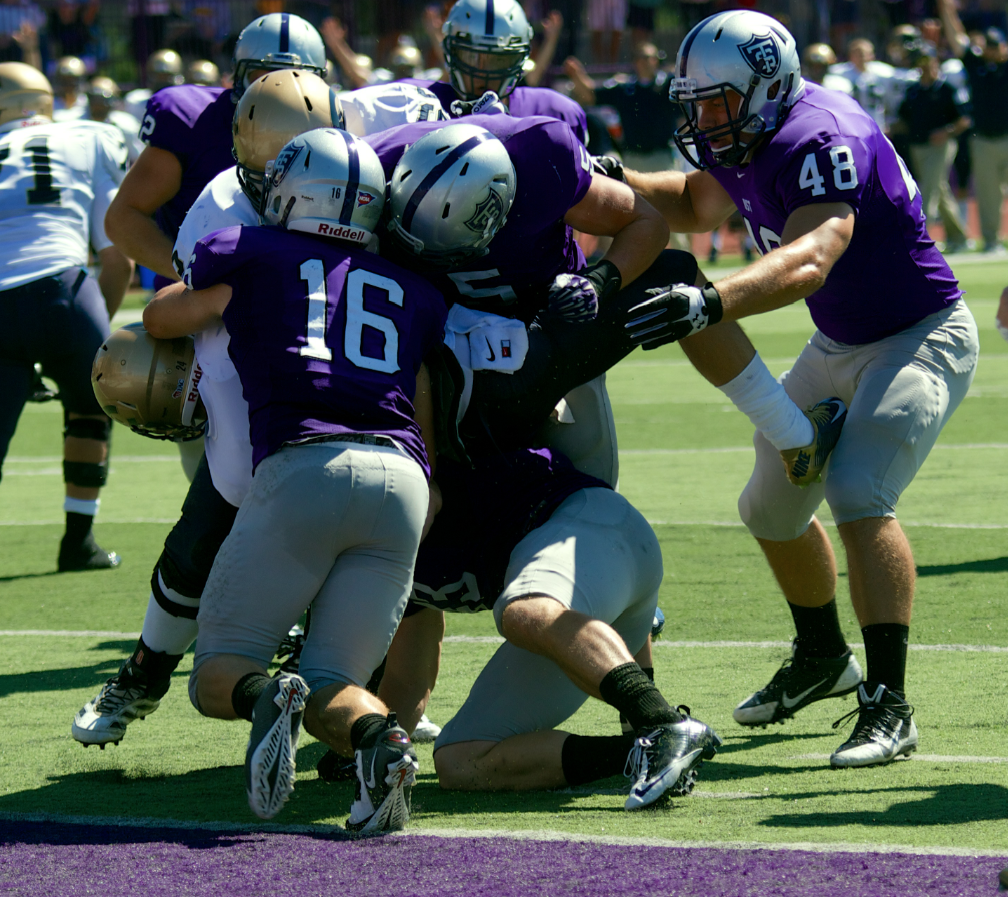The St. Thomas athletic training staff introduced prototypes and new exercises to address concussions in various ways to benefit all athletes and improve safety.
The new program has already been implemented, and Jim Rakow, St. Thomas head athletic trainer, said the training staff is confident in its focus.

“The main feature of the new program is going to be rotational muscle strength and control,” Rakow said. “It will basically be neck rotation and neck reactivity.”
Rakow is also spearheading the move for more head-injury research at St. Thomas. He meets with concussed athletes on a daily basis, keeps a chart of their symptoms and discusses with them what made it worse or better.
“The research on concussions is all over the board,” Rakow said. “There’s no magic number of how many is too many, and there’s no severity rating scale like there used to be.”
Senior Lucas Marks said he recently made the decision to leave the football team as a result of recurring symptoms caused by multiple concussions.
“I’ve had symptoms daily for the last three weeks or so,” Marks said. “So I sat down with my parents, doctor and trainer, and we all decided it was best I don’t play.”
Marks said his experience with the St. Thomas training staff was a positive one.
“I think it went really well,” Marks said. “Dealing with concussions in particular, they are really cautious about it. If you have a head-related injury, they pull you out of practice immediately.”
Marks said the training staff works to get athletes back on the field as quickly as possible, but he mentioned the staff’s concern for the continued well-being of student athletes.
“They want to get you back on the field as fast as possible,” Marks said. “But what they continue to say is that you have to worry about your life after football.”
Rakow said the unpredictability of concussions is the most challenging obstacle in treating them.
“A broken bone is a broken bone and we know relatively when it will heal,” Rakow said. “Once someone gets a concussion, we have no clue. There’s really no great road map for it.”
Rakow said concussions are hard to understand, but he’s eager to learn more about their repercussions in the future.
“All you hear about on the media is that a lot of people are doing bad,” Rakow said. “But a lot of people are doing well, too. We don’t know exactly how concussions work, but hopefully we will know more soon.”
Andrew Frentz can be reached at fren2218@stthomas.edu.

